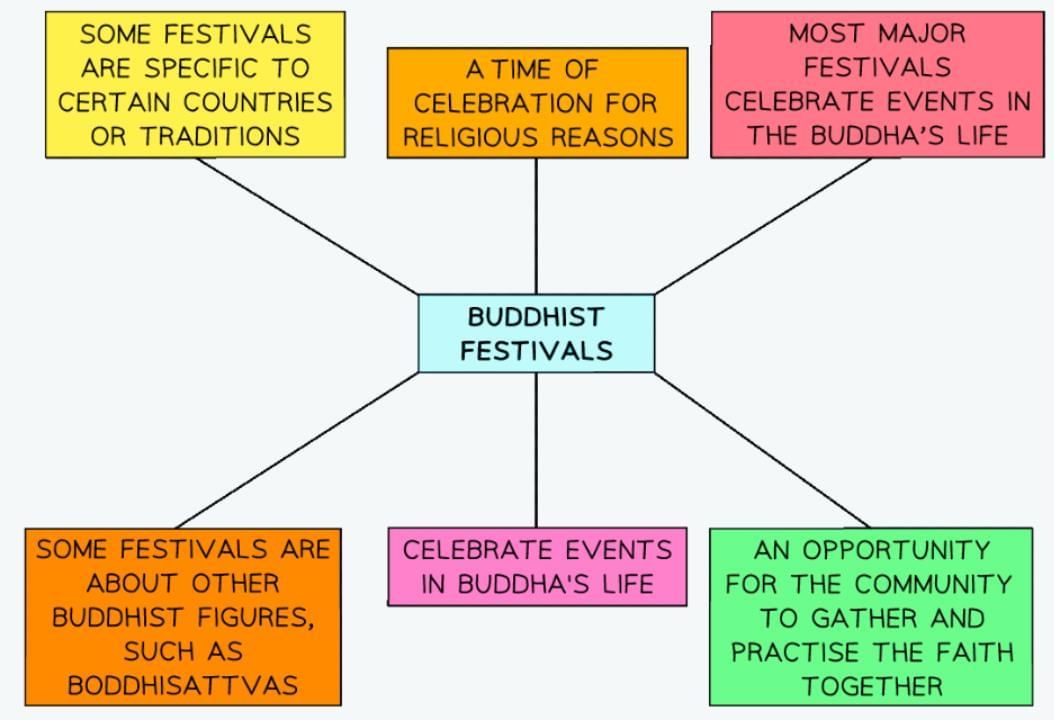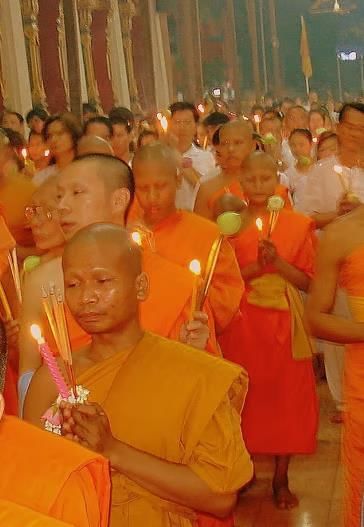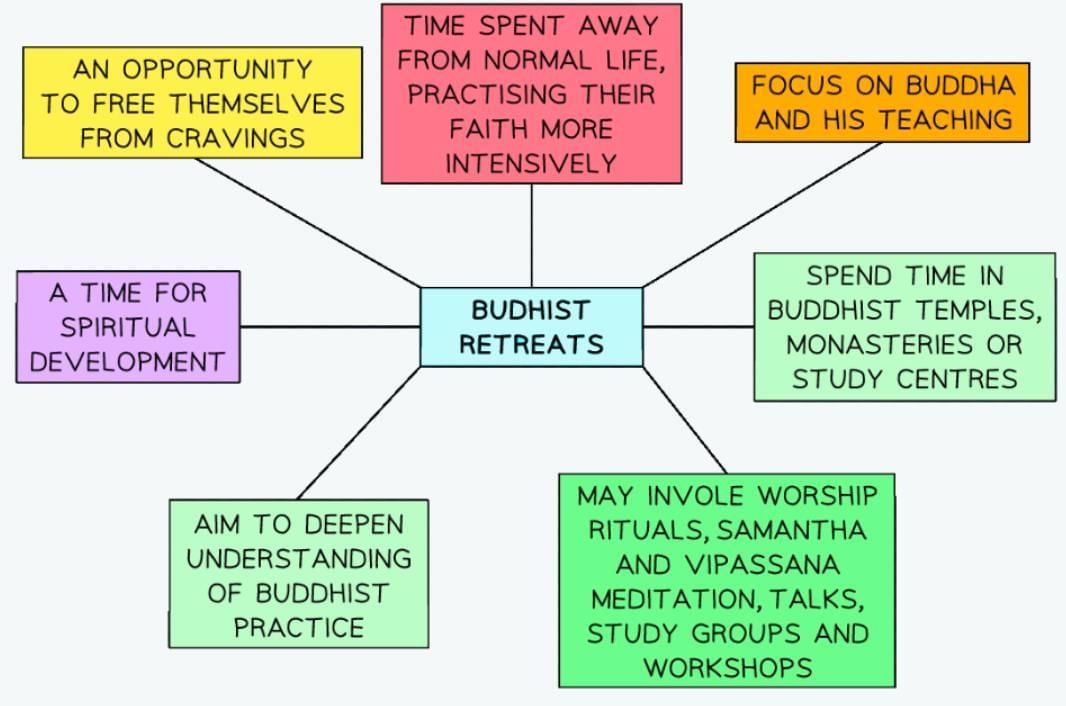Buddhist Festivals | Religion, Philosophy & Ethics for GCSE/IGCSE - Year 11 PDF Download
| Table of contents |

|
| Buddhist Festivals |

|
| Wesak |

|
| Parinirvana Day |

|
| Buddhist Retreats |

|
Buddhist Festivals
Buddhist festivals are typically occasions filled with joy and celebration, though some, like Parinirvana Day, are more reflective and solemn.
Festivals provide Buddhists with:
- A chance to honor and commemorate the Buddha’s life and teachings.
- An opportunity to come together and engage in communal practice.
Two significant Buddhist festivals are Wesak and Parinirvana Day.
Wesak
Wesak, also referred to as Vesak or Buddha Day, is the most widely recognized and celebrated Buddhist festival. It takes place in the month of Vesak, usually in May, and is primarily a Theravada tradition.
The Significance of Wesak
Wesak marks three pivotal moments in the Buddha’s life: his birth, enlightenment, and passing. It serves as a time to pay tribute to the Buddha and reflect on his teachings.
How Buddhists Celebrate Wesak
Light plays a central role in Wesak celebrations:
- Buddhists often adorn their homes with candles, lamps, or paper lanterns.
- They release lanterns to represent the light of enlightenment dispelling the darkness of ignorance.
- Offerings are made to the Buddha, and gifts such as food, candles, and flowers are presented to monks at local monasteries.
Buddhists participate in worship and meditation at local temples or monasteries:
- Monks may guide meditation sessions, chant from Buddhist scriptures, or deliver talks about the Buddha’s life, teachings, and enlightenment.
Wesak celebrations differ across countries:
- In Singapore, rituals include releasing caged birds and animals as a gesture of liberation and freedom from suffering and misdeeds.

Parinirvana Day
Parinirvana Day is a Mahayana festival that honors the Buddha’s passing into parinirvana, the ultimate state of Nibbana. It is a more somber occasion than Wesak and is observed in February.
The Significance of Parinirvana Day
This festival commemorates the Buddha’s death, offering Buddhists an opportunity to:
- Contemplate their own mortality.
- Recall loved ones who have passed away.
- Reflect on the Buddhist concept of Anicca, the impermanence of all things.
How Buddhists Celebrate Parinirvana Day
Buddhists may engage in the following practices:
- Reading and studying scriptures, particularly the Mahaparinirvana Sutra, which recounts the Buddha’s final days.
- Meditating at home.
- Joining temple or monastery communities for Puja and meditation.
Some Buddhists undertake pilgrimages:
- Many visit Kushinagar, India, believed to be the site of the Buddha’s death.
- Others attend retreats for additional prayer and reflection during this solemn period.
Buddhist Retreats
During occasions like Parinirvana Day, Buddhists may participate in retreats. These are periods dedicated to stepping away from daily life to focus on spiritual practice and deepen their faith.
|
172 docs|3 tests
|
FAQs on Buddhist Festivals - Religion, Philosophy & Ethics for GCSE/IGCSE - Year 11
| 1. What is Wesak and how is it celebrated in different cultures? |  |
| 2. What is the significance of Parinirvana Day in Buddhism? |  |
| 3. How do Buddhist retreats enhance spiritual practice? |  |
| 4. What are some common practices during Buddhist festivals? |  |
| 5. How do the teachings of the Buddha influence the celebration of festivals? |  |



















